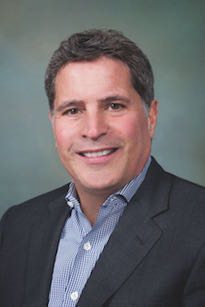William Taylor, founding editor of Fast Company magazine and a keynote speaker at the International Sleep Products Association’s 2015 Industry Conference March 4-5 in St. Petersburg, Florida, has devoted his career to challenging conventional wisdom. His book, “Practically Radical: Not-So-Crazy Ways to Transform Your Company, Shake Up Your Industry and Challenge Yourself,” became an immediate Wall Street Journal best-seller.
Taylor is now at work on a new book—“Average Is Not an Option: Why Some People Own the Future and Others Are Stuck In the Past”—slated for release in the spring of 2016. Recently, he shared with BedTimes the top five principles he believes are essential for exceptional performance at any company.
1 Stop trying to be the best. Strive to be the only. With so much competition and so many options for consumers today, the first question Taylor asks business owners to ask of themselves is: What ideas do you stand for that other companies haven’t yet? “I know that is a lofty expectation,” he says, “but in a world where there is so much competitive competence, you’ve got to figure out how to occupy a space that no one else has occupied.”
2 Don’t let what you know limit what you can imagine. Taylor says this principle is especially relevant for the owners of family-run businesses or for leaders who have been running the show for a long time. “As powerful as all that history is, as instructive as all those lessons learned are, they should come with a warning sign,” he says. “Sometimes the longer you’ve been at something, even the better at it you are, the harder it can be in times of great change to open your eyes and open your minds to new ways of reaching customers, to new ways of engaging and serving customers, to new ways of organizing your workforce.”
3 It’s just as important to be kind as it is to be clever. “So much of how we as leaders approach our competitors, our business, our finances, is driven by a dollars-and-cents proposition. If I can offer the lowest price, the quickest service, the best bang for the buck, I win every time,” Taylor says. Not so in today’s world, where consumers are accustomed to a lot of businesses competing for their dollars. “The only true area left for competitive differentiation is at the level of human-to-human interaction,” he says. “In a world that is being reshaped by economics and technology, what people are really hungry for is a sense of humanity—the flesh-and-blood human beings who make up that organization and how they conduct themselves with the rest of the world.”
4 What you unleash is more important than what you control. Taylor eschews the traditional principle that the most successful business leaders are the ones who vanquish the most rivals. Increasingly, he believes, success is more about enlisting allies—less about all the power you amass and more about all the “creative collisions” that you spark. “The traditional theory of leadership is ‘I am the chief executive officer, I have to be the smartest person in the room’,” he says. “Everybody is looking at you to give the answers, to come up with the strategies. Today, the problems are so big, the opportunities are so vast, that is just asking too much of an individual leader. Nobody alone is as smart as everyone together.” The best leaders Taylor knows don’t say, ‘I’ve got this great idea, what’s my top-down style of communicating it to get everyone on board?’ They say to themselves, ‘I need a great idea, what’s my “architecture of participation” so that lots of smart people can think alongside me and with me and together we can see opportunities or solve problems that I would never have been able to do on my own?’ ”
5 The job of every leader is to keep learning as fast as the world is changing. “It is the hardest thing in the world to do, especially for really successful people,” Taylor notes. “No matter how steeped in an industry we are, the first job is to look for opportunities to learn new things, encounter new experiences, embrace new technologies. Educators will tell you that we learn the most when we encounter people who are least like us.” Effective leaders put themselves in a position to meet new people with new ideas. “When is the last time you did something for the first time? Ask yourself, at my job or in my business, how am I spending my time? If you have that discipline, it helps you keep learning as fast as the world is changing.”





